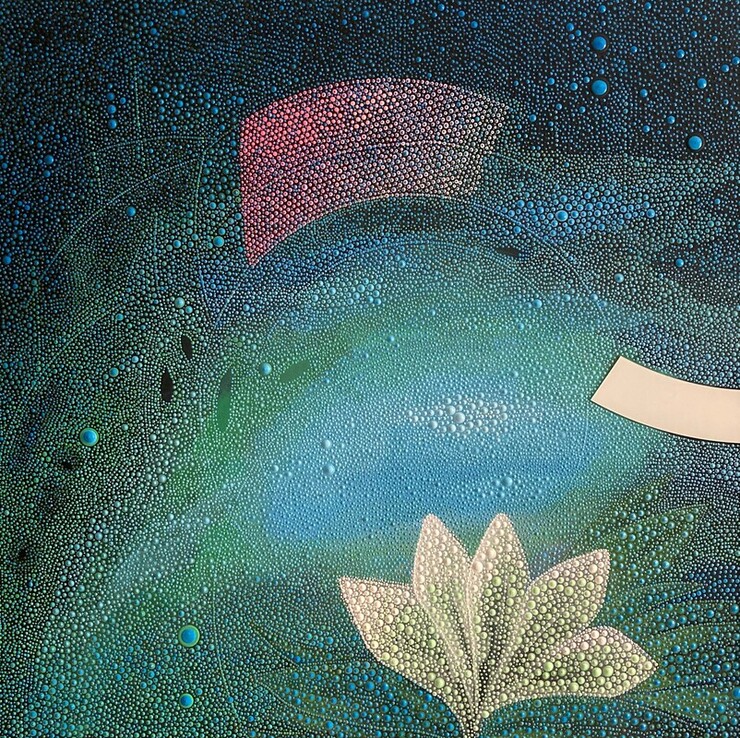|
Truman. Grinnell. Olivia. Windsor. Elizabeth. Greene. Duval. I’ve walked them one... I’ve walked them all. Old friends, I hate to see them go. In these last few days, I’ll walk them slow. And finish up where I always do… At the bar of Sloppy Joe. Written from the bar at Sloppy Joe's, Key West, Florida. September 7, 2021. Soon Abigail would be coming up the street with her Husky. She’d be coming from the coffee shop. Not so long ago, when Abigail went for a coffee, she would stop and knock. She’d say Hey, did Rhonda want anything. Often, they’d gone together. Abigail had liked to walk arm-in-arm and talk about how to understand this year they had given to the mountains. Rhonda had come in June, Abigail in May, so she knew the ropes. This town was mostly a summer outpost, but it could be seen as a shrewd base camp, as skiing wasn’t far, and the rents beat the resorts. Abigail would have a latte, Rhonda a tea with bergamot. Sherpley would sit on the tiles with his head nearly to the level of the table, watching their conversation. The Sibe had a blue eye and a green eye and the white of his fur seemed blue like powder at first light. There was the question about the hike. They’d kicked it around the day before. Abigail had been ambivalent. She’d sounded put upon. She’d become critical of Rhonda’s moods. The problem with Rhonda, Abigail said, was that while she hailed from the suburbs of nowhere, she kept getting homesick. Rhonda went out to sit on the porch swing. Lights were coming on in the canyon. After all that awful wind, it was snowing again. The air smelled like cold mountain stones and grilled meat. In the fall, Rhonda painted the wooden slats of the swing red and yellow and orange because she’d been sad about her life here. Rhonda had intended to live an outrageously fun life before returning for a career. It’s not that it couldn’t be — hadn’t been — great. Abigail introduced her around and there’d been a backpacking trip early on with nearly a dozen others. But most everyone worked weird shifts. Coordinating a challenge. A lot of free days there was no one around. Sometimes it could be disheartening all alone on a trail out in the middle of nowhere. Abigail didn’t have to work as much. She’d become a reliable partner. And Abigail had been fun. She could make fixing a flat at tree line a big laugh where Rhonda would’ve been a big pain. But with fall came Donnie. He’d bought a place he’d gutted and hoped to renovate before things got busy with his work. He made good money, but the job required frequent trips out of state. Donnie was gentle and loving. He had sincere eyes. In those first days of Donnie, Rhonda imagined he would ask her about maybe a hike or ride. Then Abigail had looked after some task or other for him and suddenly they seemed on their way to becoming a thing. Now it was winter, and the narrow streets nestled in by these sheer rock walls a mess of snow and ice. All night and most of the morning the winds stormed the canyon, snapping at the conifers. Rhonda hadn’t slept well. There had been Abigail’s ambivalence. There had been what she said about Rhonda getting homesick too often. The worst part of it was that what Abigail had said made Rhonda even more sick for home and the life she used to know. Rhonda felt bewildered that wind could rush and whorl and crash like that, like it meant to scour the town from the canyon floor. Now the tiny crystals drifted down to settle gently as turning a page. Up the street came Abigail and Sherpley. Rhonda lived in a tiny unit on a short row of apartments built so close only the sidewalk separated the front steps from the berm of packed snow and ice left by the plows. “Hul-lew!” Rhonda said, wishing in the instant she hadn’t said it that way. She should have remained neutral. Passive. Calculating. Abigail looked surprised to see her. The Husky stared up at the snow falling. “It’s snowing!” Abigail said. “I know!” Rhonda said. A crow called from a rooftop. “I was just thinking about our hike tomorrow,” Rhonda said. “Should be epic now.” “Yeah,” Abigail said. “Not working out at my end.” Rhonda pressed her tongue to the roof of her mouth. Abigail shrugged. “I just found out,” she said. “Donnie’s back tomorrow.” Everything now always about Donnie and how Abigail might stay on a while longer. About how Abigail might just stay. Rhonda’s landlord had already asked whether she planned to renew. He’d be raising rents. Something flared in Rhonda. “What if I took Sherpley?” she said. “Sherpley,” Abigail said. Rhonda heard herself breathing. “I mean, yes of course,” Abigail said. She bent down to the Husky to scratch his ears. “You’re always welcome to give Sherpley a walk. Why, isn’t that right, Sherpley? Yes, he likes a good hike, don’t you, boy?” “But I’m not sure about tomorrow,” Abigail said, standing. “It’s just that, Donnie’s been away for days,” she said. She made a sad face. “We’ve been missing him. “You know how it is when your man’s away,” Abigail said. “We’ve been climbing the walls, haven’t we, Sherpley?” Rhonda stood. The swing lurched away to bounce against the backs of her legs. “Maybe another time,” she said. “Maybe Donnie can walk Sherpley.” Rhonda crossed her arms. She wished Abigail would go away. Abigail sank down to her heels and pulled the dog in close and he licked her lips. “Oh, now!” she said, delighted. Abigail stood. She smiled. Abigail and Sherpley walked up the street to her place, the dog prancing along beside her. They went inside and it was quiet again but for a car coming down the canyon road and — closer — the scrapes of someone shoveling. Rhonda sat on the hideously optimistic porch swing and wished she had never come here. Chuck Plunkett is a Denver-based writer who directs a journalism capstone at the University of Colorado Boulder. He has previously published stories in Cimarron Review and The Texas Review. He has an MFA from the University of Pittsburgh and is currently at work on a novel he likes to think of as a literary thriller. He's worked in several newsrooms, including The Denver Post, the Pittsburgh Tribune-Review and the Arkansas Democrat-Gazette. He’s having an Old Fashioned with rye, One of his favorites, Used to have a lot of them, More recently he’s been going for other stuff, Diving right in, Not because a solid Rye Old Fashioned, Tastes any less like heaven, But because he’s been leaning, On bottles and drinks, That don’t remind him of her, He’ll be moving to bourbon on the rocks, Right after this drink. Taylor Dibbert is a writer, journalist, and poet. He’s author of the Peace Corps memoir “Fiesta of Sunset,” and the forthcoming poetry collection “Home Again.” Springfields still echoed somewhere off in the growing distance as night fell. He awoke, engulfed in dark and smoke. With great difficulty, he drew for breath and it pained him. He pulled himself up against a lone, tall pine at field’s edge and, back against the tree, put his fingers to the holes in his chest left there by the Minié balls. He coughed a choking cough. Bright, red blood streamed from the corners of his mouth and the holes in his old, grey coat leaked froth.
Surveying the aftermath of the battle, he could recognize nothing resembling human life remaining. Here he sat, by all appearances, the lone survivor. The blue coats must have mistaken him for dead, an honest mistake, else he would himself now be dead. No matter, death would come soon enough. There was no field surgeon now and nothing that a good doctor could do for such wounds save numb sensation of body and mind with what barely passed for whiskey and, if so inclined, as oft good souls were, provide some company until the end. The soldier’s soul had been numbed long ago by pain of loss of country, his ancestral land, his family. Innumerable deaths were witnessed and replayed over and over in his mind. Once a devout man, he no longer feigned such, daring to declare that God himself had abandoned the South along with all the faithful therein. Between fits of coughing and the adamantine pangs of death, he reached into a coat pocket fiddling for his flask. It was not to be found. After battles, mostly victories, those now fewer and farther between, General would ration out whiskey to the men and celebrate with them. Occasionally, the whiskey would be a balm for mourning after a defeat. There would be neither such this evening. All of the men, even the good general, lay before him carpeting the battlefield a dead grey. What I would not give for one last taste of whiskey. It is funny what men think of generally but, perhaps, more so when upon death’s doorstep. And then his mind turned toward his wife, Sarah. This time of an evening, she would have finished up supper, said prayers with the children, and soon be tucking them into bed. He could not know that Sarah rarely slept these nights but, rather, spent them in a rocking chair in front of their bedroom window, curtains drawn, keeping watch over the path in the front yard for his return. Everyone knew that the war was drawing to a close and Sarah never lost faith that he would one day return to her. From another pocket, he took hold of his journal. He took pen to hand and, within its pages, described this, his last battle, under the entry “The Battle of Sulphur Creek Trestle.” He described the events of the day, as best he could, how the valiant men all lay dead, how hope was now all but lost for his countrymen, and then his mind wandered back to his home and to Sarah and the children. He lay there dying, a mere seven-mile ride by horse from his home in Athens. If only he could make it home to say his final goodbye. He would have to write it and hope that the words found their way to Sarah. Sarah awakened in the middle of the night. She had dreamt that her husband lay dying in a silent field, propped up against a long, tall pine, body riddled with bullets. He lacked all comfort save those to which he could recourse in his own mind. A man ought not die like that, especially a good man. How she longed to embrace and hold him, to comfort him in all the ways a woman can comfort a man. To wipe his face with a water-soaked rag…to put a swig of good whiskey to his lips. The dream was more vivid than the present dim and dull reality. She had seen him writing in his old, dirty, now heavily bloodstained leather journal and read every word until the end, feeling as having been there with him through it all and with him still at the very last. But she could not decipher that which he wrote finally—a single line of script. Try though as she may, she was wisped away from the dream to reality against her will, filled with the anxiety that only words unspoken, those impeded by the encroachment of death, can impart. She sprang up, drenched in cold sweat, feet to the hardwood floor of the old, two-story antebellum which creaked as her weight displaced upon it. She made her way to the antique, oak armoire and retrieved a dusty, crystal decanter and poured herself a glass of whiskey. It was still stiff and hot. She poured another, drinking it swiftly, as medicine for nerves burned frazzled. On edge, senses heightened from the dream, to which she was still trying to reenter, she heard a rustling noise outside. Someone was on the front porch and, at this hour, this could not bode well. From a drawer within the armoire, she carefully removed her husband’s Griswold & Gunnison .36 caliber six-shooter sliding it from its well-worn, leather holster. She crept down the stairs, walking to the edge to avoid alerting any intruder to her awareness of the situation. She was ready to kill a Yankee if she had to, or one of those bastards who refused to fight with the real men, and even boys, of the South. She took her French chemise gown in left hand and pulled it up as she glided silently toward the front door, black powder firearm in the right. A lone candle on the mantle cast just enough light. Back to the wall, she could clearly discern the shuffling of feet and heard the wooden planks of the porch creak. It was almost as if something were being dragged across it. Sarah inhaled a silent, but deep breath, slowly turned the key in the cast iron passage lock praying for no “click” or “clank.” She swung the door open and pulled back on the hammer, cocking the pistol and found herself pointing it toward a specter of a figure standing shadowlike in the inky darkness of the night. Sarah was terrified but she would not show it. “State your business stranger and make it quick! We are quick on the trigger in these parts!” He stood there in the darkness, silent. Or at least she thought it to be silence but then, at once, she could discern that the stranger was, in fact, speaking, rather trying to speak but so softly as to barely be audible over the cool, southern wind rusting through the magnolias. The man stumbled forward and it was enough that the candlelight illuminated his face. It was her husband. Before she could say his name, he fell toward her and as he fell, she quickly dropped the gun, catching him, falling to the floor alongside him. A hard breeze blew past them, the candle flickered, their eyes met glistening in the dim light accented by tears as precious as diamonds. She held him. She said his name over and over. She cried. She placed her hands upon his now gaunt, ashy, and bloodstained cheeks, fixing her eyes upon his, then closing them, and pressed her lips gently against his, red and salty from the tint of blood. She tasted death. He tasted whiskey. And then he passed from this life to the next, steadfast in her arms. The sun was soon up and shining morning’s first light in through the doorway. Sarah, lay there, still, having never let him go all the while weeping inconsolably through the final hours of night. It was by light of dawn that Sarah noticed the tattered journal protruding from underneath the flap of a coat pocket. She took it carefully to hand and turned through the stained pages and read, best she could, through a veil of saline. Remembering her dream, she turned to the last entry and read of the efforts of the valiant men in the battle for the trestle, moreover their homeland, and the subsequent tragedy of their demise. She had, indeed, seen from within her dream, or so it seemed to her, her husband write these very words. She read further…fond recollections of herself and of their children. And then, finally, she came to that last line penned by her husband within his journal on that fateful night…those words that she had tried so very hard to read in the dream before she was so abruptly divorced from that place and returned to the cold reality of her present life. It read, “Sarah, wake up.” Shane Huey, editor of The Whisky Blot, writes from his home in America's most ancient city. This story first appeared in The Chamber Magazine, July 30, 2021. I am tender shoot slow emergence from deep sleep in roiling black earth, patient longing through damp dormant dreams urgent pulsation of growth, persistent pressing upward through layers of soil I rise lean into light reawaken promise unfurling petal by petal to full blossom exquisite wild wonder. Liz Kornelsen is a prairie poet from Winnipeg, Manitoba and the author of Arc of Light and Shadow: Poems with Art. Previous publications include Transition, Green Teacher, and The Whisky Blot. When not writing, she may be found skiing, dancing, or savoring the rich flavors of art galleries. Art: "And the Loveliest Plant in the World" by Ewa Tarsia, an internationally acclaimed artist whose innovative, versatile and prolific work demonstrates a unique sense of texture, design and expansive imagination. Follow on Instagram @ewatarsia. Great grandma’s clock has ceased to tock, that mantel piece of crude cut wood, a case too large for inner works where even dust just lost its way. That alloy block on ramrod stick founds its weight too much to sway. Great grandad sat there by the peat, sipped Bushmills from up the way, admired his cutting from the moss. She would have him up the stairs but once the whisky had its way, along with glowing from the grate he was balanced on his seat, content, the ticking of her talk wafting, smoky, up the stack; no matter words, straitjacket, Mum, admonition of her tongue. He piled bog slack from crumpled pail, settled back, ignored the pain, tasting time, port barrel stock. Stephen Kingsnorth, retired to Wales, UK, from ministry in the Methodist Church due to Parkinson’s Disease, has had pieces published by on-line poetry sites, printed journals and anthologies, including The Whisky Blot. |
Follow Us On Social MediaArchives
June 2024
Categories
All
Help support our literary journal...help us to support our writers.
|
Home Journal (Read More)
Copyright © 2021-2023 by The Whisky Blot & Shane Huey, LLC. All rights reserved.






 RSS Feed
RSS Feed